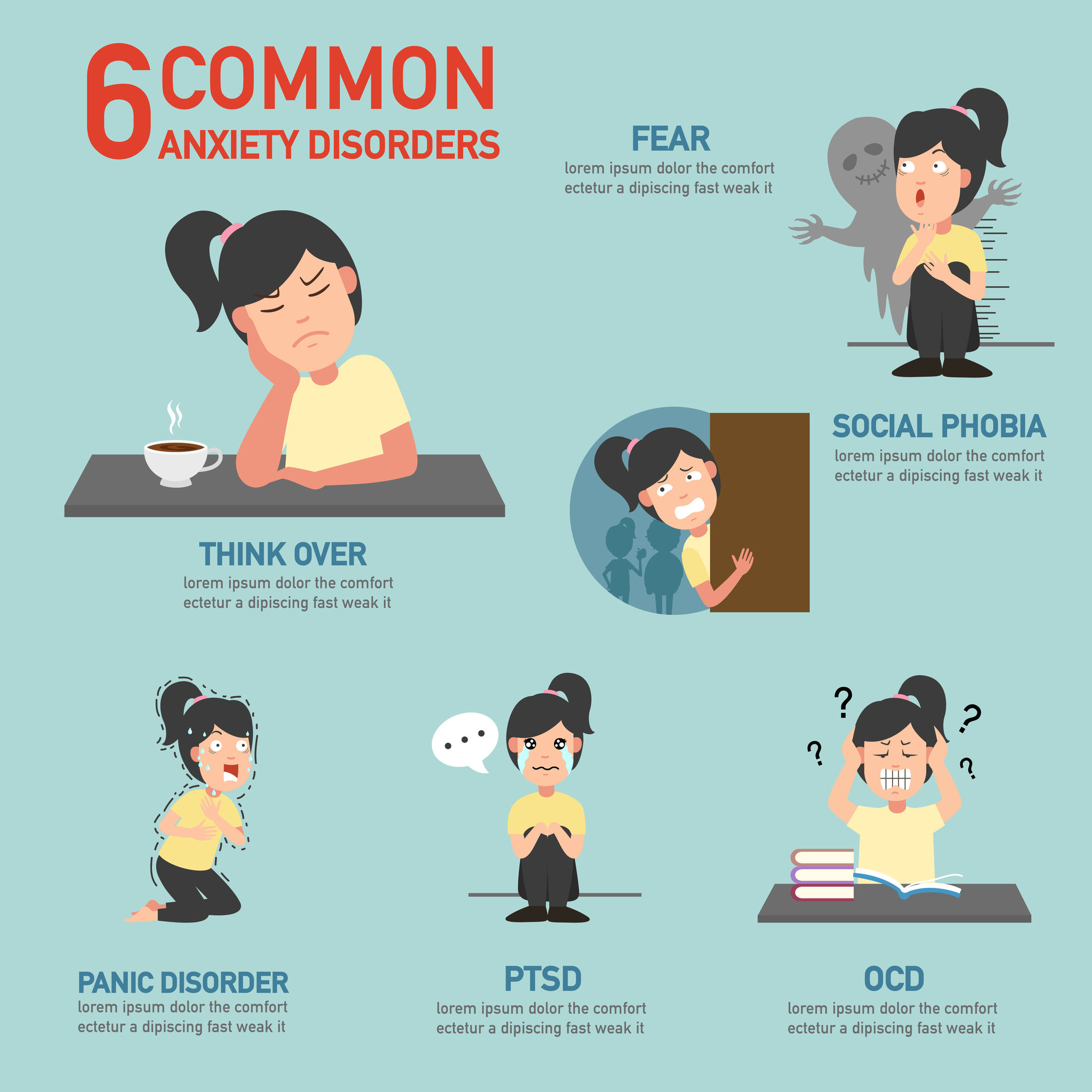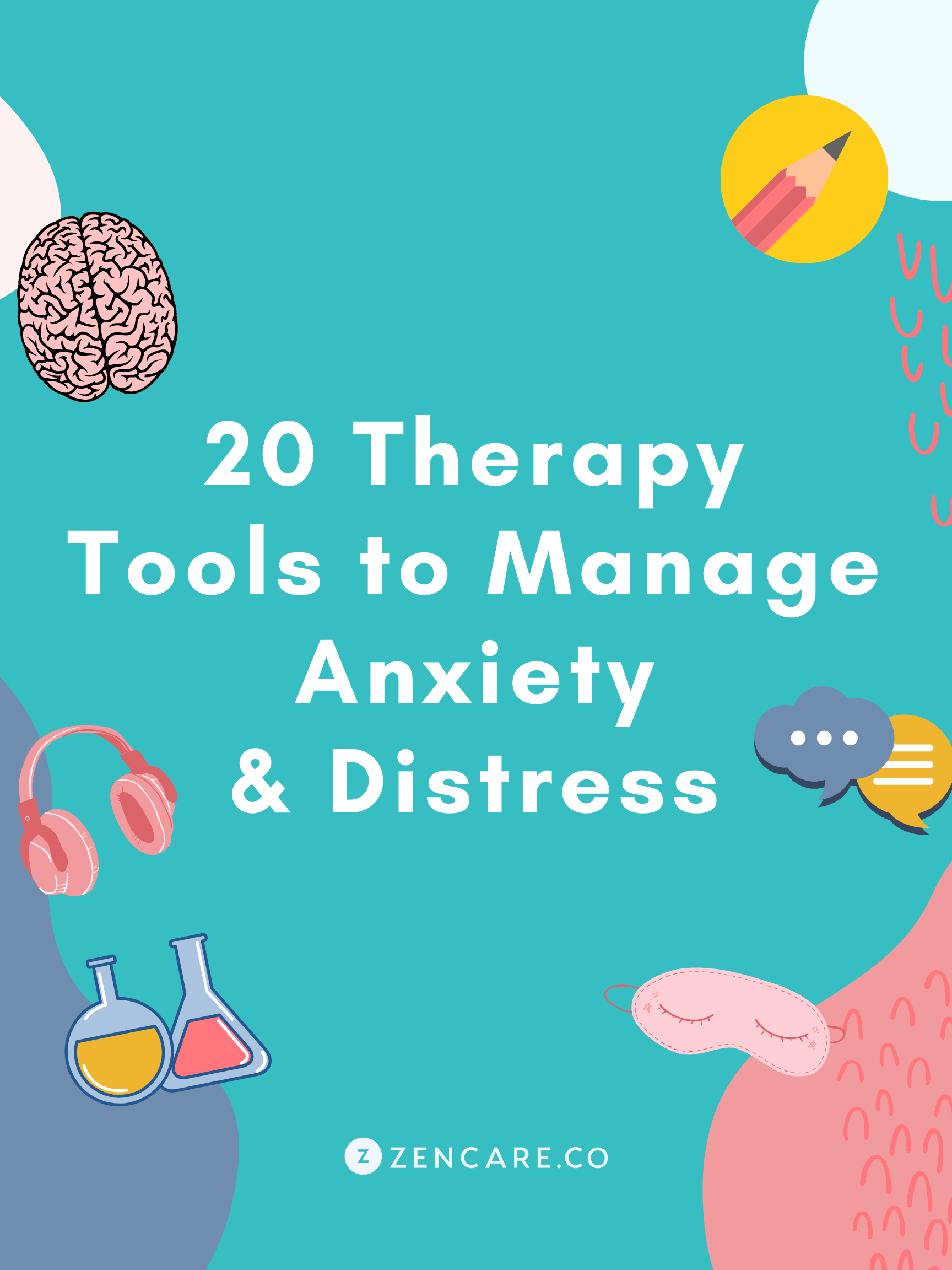Supportive and experienced therapy for anxiety designed for you
Supportive and experienced therapy for anxiety designed for you
Blog Article
Exploring Different Methods in Therapy for Stress And Anxiety Condition for Long-term Adjustment
When taking on anxiousness disorders, it's vital to check out a range of therapy techniques. Each approach uses one-of-a-kind understandings and devices to aid you handle your signs successfully. You may discover that integrating techniques can produce the finest results. However, comprehending the subtleties of these approaches is vital to promoting long lasting change. Suppose the ideal mix could release a new degree of emotional well-being for you?
Understanding Anxiousness Conditions: A Short Overview
Anxiousness conditions, which impact millions of individuals worldwide, can considerably affect every day life. You could experience overwhelming sensations of concern or worry that appear uncontrollable. These sensations can result in physical signs like a racing heart, sweating, or perhaps wooziness. Common sorts of anxiety conditions consist of generalized stress and anxiety disorder, panic attack, and social stress and anxiety problem. Each has distinct indications, yet they all share a propensity to interrupt your routine and relationships.Understanding the origin of your stress and anxiety is essential. It might stem from genetics, mind chemistry, or life experiences. Recognizing your triggers can aid you handle your reactions much better. It is necessary to bear in mind that you're not alone in this battle. Many individuals face similar obstacles, and seeking assistance is a solid action toward sensation better. By learning about anxiety conditions, you're currently on the path to understanding and managing your condition a lot more efficiently.
Cognitive-Behavioral Therapy: Challenging Adverse Thought Patterns
In Cognitive-Behavioral Treatment, you'll begin by identifying the adverse idea sets off that add to your stress and anxiety. You'll function on replacing them with even more positive options as soon as you acknowledge these thoughts. With each other, you'll construct reliable coping methods to aid manage your anxiousness in everyday scenarios.
Recognizing Adverse Thought Triggers

When you run into moments of distress, acknowledging the particular triggers behind your adverse ideas can be essential in handling anxiety. Begin by paying interest to circumstances that provoke feelings of concern or anxiety. Is it a crowded space, an upcoming due date, or a discussion with certain individuals? Write these circumstances in a journal. This will aid you determine patterns in your thinking. Notice physical sensations that accompany your adverse ideas, like a racing heart or rigidity in your upper body. By determining these triggers, you get insight right into what's fueling your anxiety. Recognizing these connections is the primary step in challenging those ideas and ultimately restoring control over your psychological actions.
Changing Thoughts With Positives
Testing adverse idea patterns is an important action in transforming your attitude and reducing stress and anxiety. You might frequently discover on your own trapped in cycles of self-doubt or tragic thinking. Instead of allowing these ideas determine your feelings, method changing them with practical choices or favorable affirmations. For example, when you believe, "I can't manage this," move it to, "I can take care of obstacles one step at a time." This simple modification can substantially impact your emotional state. Regularly determining and responding to these negative ideas aids develop a much healthier inner discussion. Bear in mind, it requires time and initiative, yet consistently practicing this technique can result in enduring adjustment, equipping you to deal with anxiousness with renewed confidence and durability.
Building Coping Techniques With Each Other
Changing adverse ideas is just the start of taking care of anxiety efficiently. To produce enduring adjustment, you need to build coping techniques that encourage you. Cognitive-Behavioral Treatment (CBT) aids you recognize and test those unhelpful idea patterns. With each other, you and your therapist can discover how these thoughts effect your feelings and behaviors.Start by establishing sensible methods, like journaling or mindfulness exercises, that enable you to confront stress and anxiety head-on. When you encounter your anxieties gradually, you'll find out to respond in a different way.

Mindfulness and Acceptance-Based Approaches: Growing Present-Moment Understanding
As you browse the complexities of anxiousness, incorporating mindfulness and acceptance-based techniques can considerably improve your capacity to cultivate present-moment understanding. By focusing on the present moment, you'll locate that you can observe your thoughts and sensations without judgment (Counseling services for anxiety). This practice assists you recognize your anxiousness without feeling overwhelmed by it.Engaging in mindfulness workouts, such as deep breathing, body scans, or guided meditations, permits you to ground on your own in your current experience. Acceptance-based approaches urge you to embrace your emotions instead than deal with against them. When you accept your sensations, they lose their power over you.Incorporating these methods into your day-to-day routine can change just how you react to anxiousness. You'll develop strength and learn to navigate difficult scenarios with higher convenience. Inevitably, cultivating present-moment understanding lays the structure for long-term modification, empowering you to lead a much more meeting life
Direct Exposure Therapy: Challenging Concerns Slowly
Direct exposure therapy helps you challenge your concerns in a progressive way, making it less overwhelming. You'll find out techniques to face anxiety-provoking circumstances action by step, while also building coping strategies to handle your responses. This technique equips you to take control and minimize stress and anxiety in time.
Gradual Direct Exposure Strategies

When encountering stress and anxiety, gradually challenging your concerns can be a powerful means to reclaim control. This method, called steady direct exposure, involves gradually exposing on your own to the circumstances or things that activate your anxiety. Beginning with much less intimidating circumstances and gradually work your means as much as even more difficult ones. If you're afraid of public talking, you could start by talking in front of a mirror, after that advance to sharing thoughts with a close friend, and ultimately attend to a small team. Each step assists desensitize you to the fear, Visit This Link developing your self-confidence over time. Bear in mind, it's necessary to rate on your own and celebrate small success as you move with this procedure, enhancing your capacity to manage stress and anxiety successfully.
Structure Coping Strategies
Building reliable coping techniques is essential for taking care of anxiety, particularly as you challenge your worries progressively - Counseling services for anxiety. One powerful approach is exposure therapy, where you begin by facing your concerns in a controlled fashion. Start with less daunting scenarios and slowly work your means approximately even more difficult situations. This progressive exposure assists desensitize you to anxiousness activates, making them much less overwhelming.Incorporate leisure methods, such as deep breathing or mindfulness, to calm your mind during direct exposure. Track your progression, commemorating little success in the process to increase your confidence. Remember, it's all right to take your time; the objective isn't excellence yet constant renovation. By developing these methods, you'll equip yourself to navigate anxiety and embrace life more fully
Psychodynamic Therapy: Uncovering Origin of Anxiousness
Psychodynamic therapy explores the subconscious mind, disclosing the root causes of your anxiousness. By examining your ideas, sensations, and past experiences, this strategy assists you uncover underlying problems and unsettled issues that might contribute to your existing anxiety. You'll deal with a therapist to investigate childhood years experiences, connections, and emotional patterns that form your reactions today.As you gain understanding into these deeper layers of your subconscious, you'll start to recognize how previous events affect your present actions. This understanding can cause catharsis, enabling you to process emotions you may have suppressed.Through the healing connection, you can likewise determine defense reaction that may have created with time, providing a more clear course to change. Eventually, psychodynamic treatment furnishes you with the devices to resolve your stress and anxiety at its core, promoting long lasting change in your emotional well-being.
Integrative and Holistic Methods: Combining Strategies for Greater Efficacy
Integrating different healing techniques can improve your trip towards taking care of anxiety much more properly. By combining elements from cognitive-behavioral therapy, mindfulness practices, and holistic methods, you can produce a tailored Our site method that resolves your one-of-a-kind demands. For example, you might use cognitive-behavioral techniques to challenge negative thought patterns while incorporating mindfulness exercises to ground yourself in today moment.Additionally, exploring holistic practices such as yoga or meditation can promote relaxation and minimize anxiousness symptoms. This blend enables you to develop greater self-awareness and resilience.Experimenting with these varied approaches can assist you find what resonates most with you. Remember, it has to do with locating a harmony that works, as opposed to sticking to a single approach. This integrative approach not just uses instant relief but also cultivates long-term abilities for taking care of stress and anxiety, encouraging you to redeem control over your life.
The Duty of Support Solutions: Building Strength Through Link
While it may seem that managing stress and anxiety is a solitary trip, having a strong support group can play a crucial function in your resilience. Bordering yourself with understanding good friends, family, Visit Website or support system develops a risk-free room where you can freely share your experiences and feelings. When you get in touch with others, you remind on your own that you're not alone in this struggle.These connections offer inspiration and can offer sensible coping techniques that have actually worked for others. It's also a possibility to obtain perspective; close friends can assist you see scenarios differently, lowering feelings of isolation.Moreover, emotional support promotes a sense of belonging, which can greatly alleviate anxiousness signs. By leaning on your support system, you can develop resilience and take on difficulties extra efficiently. Remember, getting to out for help is an indication of toughness, and it can make all the difference in your trip towards taking care of anxiousness.
Frequently Asked Questions
What Are the Typical Signs And Symptoms of Anxiety Disorders?
You might experience restlessness, tiredness, problem focusing, impatience, muscular tissue stress, and rest disruptions. Physical symptoms can consist of quick heart beat, sweating, and shivering. Identifying these indications early can aid you look for proper assistance and therapy.
For How Long Does Treatment Generally Last for Stress And Anxiety Conditions?
Treatment for stress and anxiety problems typically lasts anywhere from a few weeks to several months. It truly relies on your specific demands, development, and the strategies your therapist makes use of to assist you manage your anxiety successfully.
Can Medication Be Used Alongside Therapy for Anxiety?
Yes, medication can certainly be used along with treatment for stress and anxiety. Combining both approaches usually improves therapy efficiency, helping you handle symptoms while exploring underlying problems with therapy (Counseling services for anxiety). Constantly consult your doctor for individualized suggestions
Are There Self-Help Strategies for Managing Anxiety?
Yes, there are several self-help techniques for managing anxiousness. You can exercise mindfulness, participate in regular exercise, maintain a balanced diet regimen, develop a regular, and use deep breathing techniques to assist reduce stress and anxiety symptoms successfully.
How Do I Know if I Need Specialist Help for Anxiousness?

Report this page